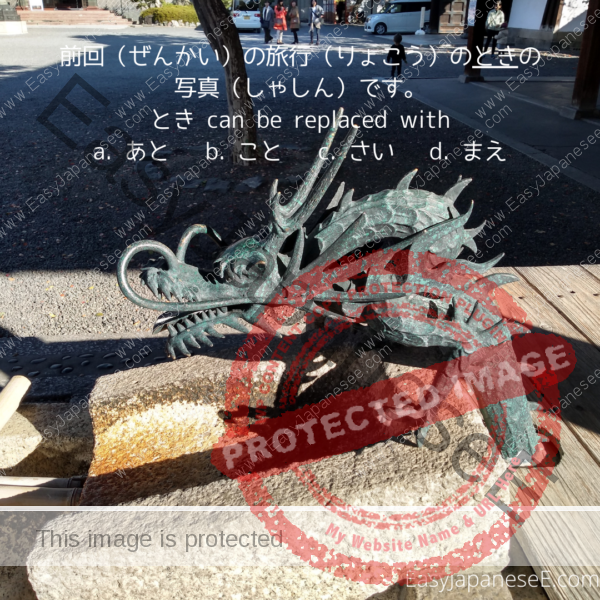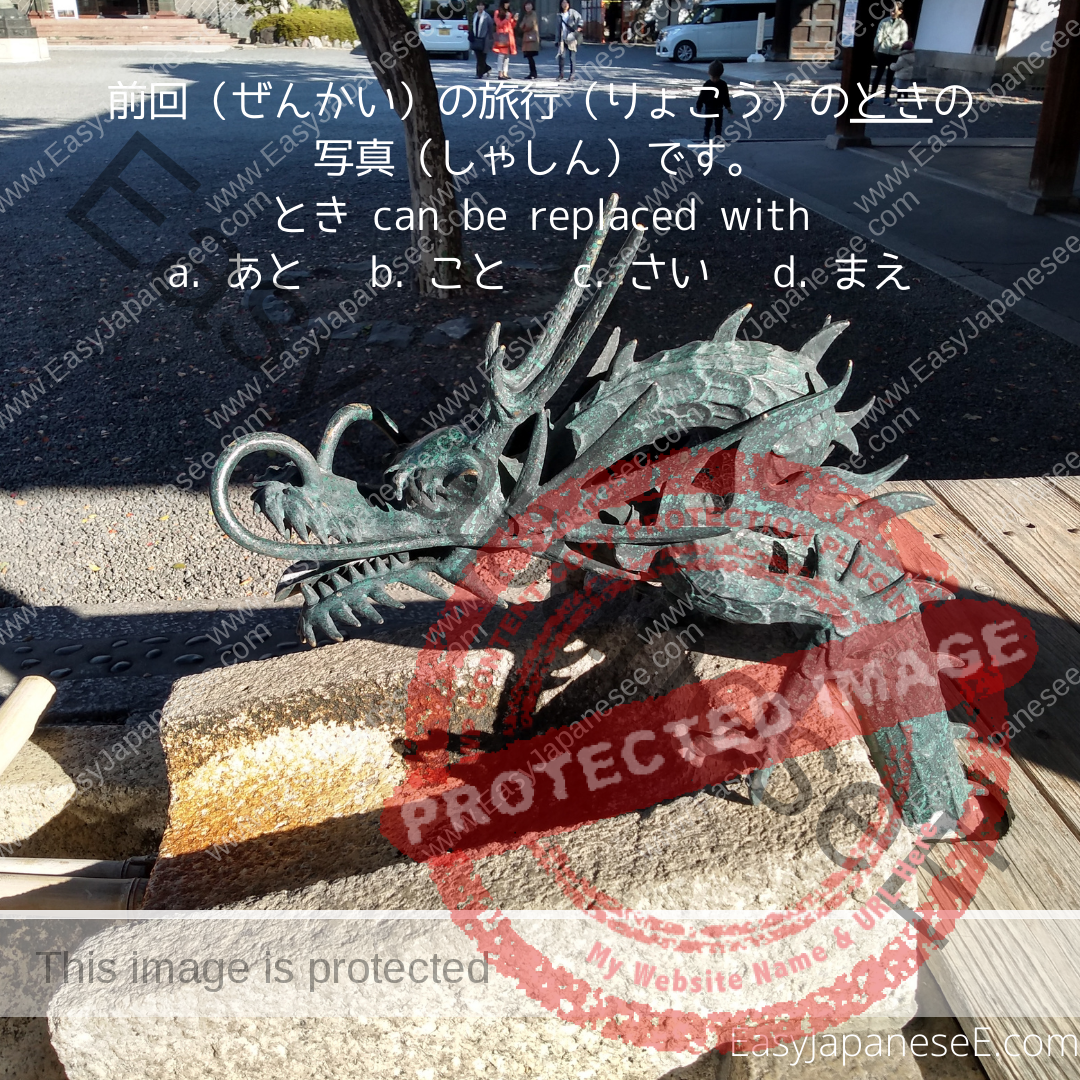
Today’s Question
前回の旅行のときの写真です。
とき can be replaced with
a. あと b. こと c. さい d. まえ
Today’s Grammar Point: ~さい
~際 is a very formal alternative for ~とき, which can be translated as “when ~” or “at the time when ~.” As 際 is a very formal expression, it is often used within an honorific expression. Most 際 can be replaced with とき but there are some occasions you can’t. See the examples below.
Connection
- この/その/あの + 際
- [noun] の際
- [plain form verb] 際
Examples
(✓)この際止めてしまおう。
(×)このとき止めてしまおう。
Let’s stop it on this occasion.
この際 is a set expression meaning “now,” “in these cercumstances,” etc, and you cannot swap it with このとき.(✓)その際はお世話になりました。
(✓)その節はお世話になりました。
(?)そのときはお世話になりました。
Thank you for your help at that occasion.
そのときは is not wrong but as it is very informal, it does not match the formal feel of お世話になりました.(✓)離陸の際はシートベルトを締めてください。
(?)離陸のときはシートベルトを締めてください。
Fasten your seat belt when taking off.
My impression is that 際 covers a slightly longer period than とき, so I get the feeling that 離陸の際 includes the period when the aeroplane is moving on the ground while 離陸のとき sounds more like the very short period when the aeroplane gets airborne.近くにお越しの際は、お立ち寄りください。(formal)
=近くに来られたときは、お立ち寄りください。(casual)
Please drop in when you come nearby.前回の旅行の際の写真です。(formal) – Today’s Question Sentence
=前回の旅行のときの写真です。(casual)
This is a photo during my last trip.ご乗車の際は、携帯電話のスイッチをお切りください。(honorific)
Please switch off your mobile phone when boarding.車に乗る際には、必ずシートベルトを締めています。(formal)
=車に乗るときには、必ずシートベルトを締めています。(casual)
When I get in the car, I always fasten my seat belt.次回帰国する際には、必ず参ります。(formal)
=次回帰国するときには、必ず参ります。(casual)
I will definitely come to you when I go back to Japan next time.オランダに行った際に、ゴッホ美術館に行きました。(formal)
=オランダに行ったときに、ゴッホ美術館に行きました。(casual)
When I went to Holland, I went to the Van Gogh Museum.このカーペットを購入した際のレシートです。(formal)
=このカーペットを購入したときのレシートです。(casual)
Here is the receipt I got when I bought this carpet.
Answer to Today’s Question: c
See above

